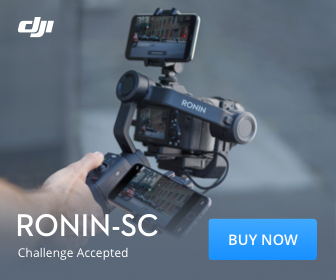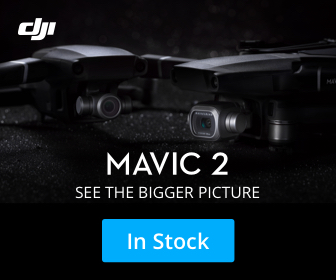 The new Zenmuse X7 transforms it into the world’s first fully-integrated aerial platform, featuring a Super 35mm sensor for video recording with 6K is the resolution of the height. The Zenmuse X7 is a top-of-the-line, professional film-making tool, making it possible for creators to focus on capturing their unique vision of the world. A new EI mode makes it easy to match with different cameras used for TV series, commercials, and documentaries as well as feature films.
The new Zenmuse X7 transforms it into the world’s first fully-integrated aerial platform, featuring a Super 35mm sensor for video recording with 6K is the resolution of the height. The Zenmuse X7 is a top-of-the-line, professional film-making tool, making it possible for creators to focus on capturing their unique vision of the world. A new EI mode makes it easy to match with different cameras used for TV series, commercials, and documentaries as well as feature films.
Best DJI Gimbal Cameras Under Your Bedget
Zenmuse X7
Our Rating:
- 6K CinemaDNG 24MP
- Inspire 2 Compatibility
- Aspect Ratio 17:9
- 14 Stops of Dynamic Range
- 151 × 108 × 132 mm
- 449 g
Editor’s Choice
Zenmuse X5S
Our Rating:
- 5.2K 30fps CinemaDNG 20MP
- Inspire 2 Compatibility
- Aspect Ratio 2.44:1
- 2.8 Stops of Dynamic Range
- 140×98×132 mm
- 461 g (Lens Kit)
Editor’s Choice
What Are the Differences Between the DJI Zenmuse X7 and X5S Cameras?
DJI’s release before the Zenmuse X5S camera, Now DJI simply introduced the new Zenmuse X7 version. The Chinese drone manufacturer is innovating thus speedily that it should be arduous to stay track of all the new options related to its ever-expanding product varies. Let’s check the most variations between the 2 cameras area unit and that one you must get.
But first, let’s eliminate a supply of confusion. The X5R was the previous camera solely compatible with the Inspire one drone. On the opposite hand, the X5S and recently declared X7 camera area unit each compatible with the Inspire a pair of however not backward compatible with the Inspire one.
Micro Four-Thirds Versus APS-C Sensor
The primary contrast is identified with the sensor size. The Zenmuse X5S utilizes a Micro Four Third (MFT) sensor while the X7 sets out an APS-C sensor.
In the video and still, mode the Zenmuse X7 utilizes the Super 35mm area of the APS-C sensor (23.5×12.5 mm)
With this plan, DJI adjusts its proposals to the norm of the film business. The Super 35mm arrangement is embraced by most expert cameras, for example, the Canon C200 or Sony FS7, or Panasonic EVA1.

From an actual viewpoint, the X7 sensor is around 50% bigger than the one of the X5S. More sensor surface methods better powerful reach and low light execution. DJI declared that the X7 arrives at 14 stops of dynamic reach against 12.8 stops for the X5S. High ISO pictures ought to likewise show less commotion.
Add Your Heading Text Here
For the full set, the value contrast between the X5S and the X7 framework is about $1,899–$2,849 relying upon the lens choice yet the lenses are a lot less expensive on the X5S camera. Building a lens assortment on the X7 is pricier. For example, the 50mm lenses (35mm same) on the X5S cost $324 against $1,300 for the X7.
What If You Have the X5S? Should You Upgrade to the X7?
Fortunately, the ProRes and CinemaDNG licenses are attached to the Inspire 2 drone so the move up to the X7 doesn’t need buying the permit some other time. The DJI SSD is additionally cross-viable. However, actually, in the event that I had the X5S, I would adhere to it except if you need the additional increase in goal, dynamic reach, and ISO. Furthermore, remember that the past X5R camera presented on the Inspire 1 was not viable with the Inspire 2. Now, nobody
knows whether the X7 will be viable with a future Inspire 3 drone. As I would see it, the X7 is defended for a first-time purchaser yet the X5S is as of now an incredible camera with astonishing abilities. The moderate detail acquires and the topic of future similarity would keep me from purchasing the X7 in the event that I previously claimed the X5S.
Zenmuse X7
PROS
- APS-C sensor with Super 35mm coverage in video mode.
- Dynamic range (14 stops) and ISO performance.
- 6K aspect ratio (17:9 and 16:9) thanks to the 24-megapixel sensor.
- 12 bits CinemaDNG / 10 bits ProRes video recording
- 3:2 aspect ratio in still mode, similar to most DSLR.
- New DJI DL mount lenses
- weight difference (50 grams) to the X5S
CONS
- Expensive then X5S is about $2,899
- 6K only available in CinemaDNG format (4.4 Gbps).
- No high-resolution mode (5.2K and 6K) available in ProRes
Zenmuse X5S Capable System for Less Money
PROS
- Aout $2,000 cheaper than the X7.
- X5S MFT lenses are cheaper than the new DJI DL lenses.
- 12-bits CinemaDNG & 10 bits ProRes video recording
CONS
- X5S MFT sensor is 50 % smaller than X7
- Less common 4:3 aspect ratio in still mode.
- “Only” 5.2K video mode. No 6K on the X5S.
- 12.8 stops versus 14 stops on the X7
- 5.2K aspect ratio (16:9) CinemaDNG format (4.2 Gbps). Need to purchase the additional $1,000 CinemaDNG
Final Conclusion
Let’s face it. At the cost, the two frameworks are generally excellent and offer more than numerous expert cameras available. I needed to look hard to place a few things in the Con classification.







